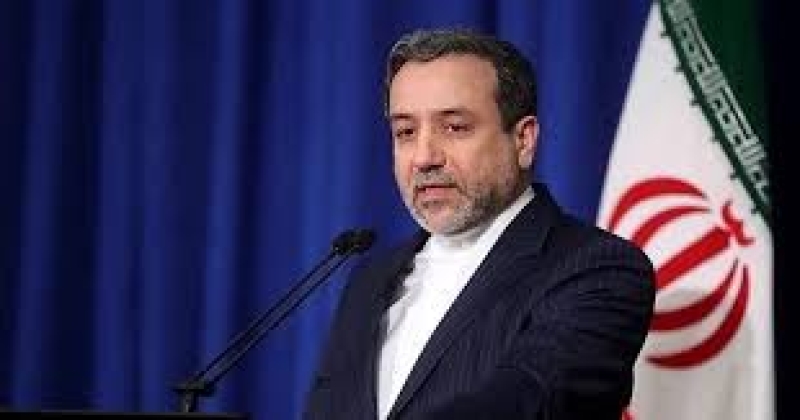- Puppet show enchants Children as Boi Mela comes alive on day 2 |
- DSCC Admin Salam’s drive to make South Dhaka a ‘clean city’ |
- 274 Taliban Dead, 55 Pakistan Troops Killed |
- Now 'open war' with Afghanistan after latest strikes |
- Dhaka's air quality fourth worst in world on Friday morning |
Iran’s FM to Hold Indirect Nuclear Talks with US Envoy in Oman

Iran's Foreign Minister, Abbas Araghchi, confirmed on Tuesday that he will meet US envoy Steve Witkoff in Oman for the first round of negotiations under the Trump administration aimed at addressing Tehran’s rapidly advancing nuclear program. This comes amid heightened tensions in the Middle East.
Speaking to Iranian state television from Algeria, Araghchi emphasized that the talks will be indirect, with Omani mediators likely facilitating communication between the two parties. Contrary to earlier statements by US President Donald Trump, who described the talks as "direct," Araghchi clarified that Iran prefers to keep the discussions indirect for now.
The announcement marks a significant development, as years of indirect talks under the Biden administration failed to yield results, and Tehran has since increased uranium enrichment to up to 60% purity — a technical step from weapons-grade levels. Both the US and Israel have openly threatened military action over Iran's nuclear ambitions, while Tehran has warned that it may move toward developing a nuclear bomb.
Iran’s Nuclear Objectives and Negotiation Goals
"Our primary goal in these talks is to restore the rights of our people and lift the sanctions," Araghchi stated. "If the other side is genuinely willing, this is achievable, regardless of whether the talks are direct or indirect." He further clarified that, for the time being, Iran prefers indirect talks and has no plans to shift to direct negotiations.
While Araghchi’s comments leave the door open for potential future direct talks, it is important to note that direct discussions between Iran and the US have not taken place since the Obama administration.
Economic Rebound Following Negotiation Announcement
The announcement of the talks provided an unexpected boost to Iran’s struggling economy. Following Trump’s remarks about the negotiations, Iran’s rial currency, which had plummeted to a record low of over 1 million rials to the dollar, rebounded to 990,000 rials on Tuesday. The Tehran Stock Exchange also saw a 2% increase in response to the news.
Iran’s economy has been severely impacted by international sanctions, particularly after President Trump unilaterally withdrew the US from the landmark 2015 nuclear deal. The deal had led to Iran significantly reducing its uranium enrichment in exchange for the lifting of some sanctions. At the time, the rial traded at around 32,000 to the dollar.
Public Discontent Amid Economic Struggles
The ongoing economic difficulties have decimated public savings, pushing many Iranians to seek alternative means of securing wealth, such as investing in hard currencies, gold, cars, or cryptocurrencies. Some have also turned to risky financial schemes in an effort to combat rising inflation and economic uncertainty.
As negotiations with the US move forward, Iran’s leadership faces the challenge of navigating both international diplomatic pressures and domestic economic instability.

